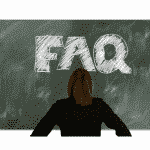By Keith Boggs
Posted May 15, 2020, at 9:00 am CT
Buying a home can be the largest investment you will make in your lifetime — which is why a home inspection is such an important part of the home buying process. It’s also an inexpensive service compared to the cost of a home. You’ll probably spend less than $1,000 on the inspection of a $500,000 property, which is a mere 0.2% of the property’s cost!
What else should you know about the financial aspects of a home inspection? These are the most common questions we hear from readers like you.
Who pays for a home inspection?
This is negotiable, but usually, it’s the buyers who pay for the inspection. And the most important reason buyers pay for this key service is this: It means they get to hire and oversee the home inspection company. It means they can attend the inspection itself — although that’s not recommended when there’s a pandemic, and you can learn more by reading our blog post about home inspections during this COVID-19 era.
It also means they have direct access to the home inspector’s findings and the freedom to ask as many questions as needed to make them feel more comfortable about moving forward or walking away. The home inspector is their ally who will help them see things they would otherwise miss as they take on a huge amount of risk buying a home and land about which they know very little. It’s a small price to pay for peace of mind.
How much does a home inspection cost?
In our area, most home inspections average around $500 to $700. And the cost will vary based on a number of common factors.
Most home inspectors base their fees on the square footage of the home, which includes all floors, basements, attics, and porches. The larger the home, the more you’ll usually pay. The presence of a pool, spa, and/or outbuildings, like garages or sheds, may increase the cost, as could a high-pitched roof, which takes additional time to thoroughly inspect.
There may also be a slight increase in price for inspection of a home with a pier and beam foundation because the inspector has to crawl under the house to perform his work. Or of older or historic homes, which often take longer to inspect if they’ve undergone renovations that can lead to complications, like hybrid electrical and plumbing systems.
Additionally, if a property is outside the inspector’s normal service area, he may include a travel fee. He may also impose additional fees if he gets to the service appointment only to find that the home isn’t “inspection-ready” or keys and combinations to items on the property haven’t been made available. And the reinspection of defects the seller agrees to fix may or may not be included in the inspector’s final estimate.
Finally, if the local real estate market is hot, prices may increase based on demand and competition. Whatever you end up paying, keep in mind that it’s still a very small price compared to the potential investment you’re about to make.
Can I negotiate the cost of a home inspection?
Yes, you can try. And some inspectors will fight to get your business by lowering their prices or offering you a perceived “deal.” But this can be a red flag. Sure, you may be able to save $50 or $100 to have a person with little-to-no experience and less-than-helpful customer service standards “do the job” to meet the Texas Real Estate Commission’s minimum requirements. But that’s not a smart move when you’re staring a six-figure purchase in the face.
What’s most important is that you select a qualified, experienced inspector. Here are a few additional articles that explain the importance of hiring the best home inspector you can find and how to do it:
- Selecting a Home Inspector? Ask These 13 Questions.
- Selecting a Home Inspection Company: You’re Hiring a Person, Not a Company
- The Most Important Question to Ask a Home Inspector Before You Hire
Who pays for repairs found during a home inspection?
Your home inspector will find defects — of that, you can be sure. So, who pays to have them fixed? This is all up to your priorities and a well-considered negotiation with the seller.
On the one hand, you can negotiate to have the seller fix some or all of the defects your inspector identified. In this case, the seller has control over selecting the repair service providers and overseeing the work. As a buyer, you’ll have little-to-no control over how repairs are made.
On the other hand, you can negotiate a price reduction or some other concession, like closing cost credits or a home warranty, deciding that you will pay to fix defects on your own terms. In this case, you’ll have more control over how and when the work is done.
The “right” decision will vary based on what the inspector finds, how much control you want over the repairs, and financial considerations, among other factors. Talk to your inspector to get his perspective and work with your real estate agent and other trusted advisors to determine how you want to approach negotiations. For more information, read our article about what happens after a home inspection.
What We Care About
At Stonebriar Property Inspections, our primary goals are to provide you with the most thorough home inspections, the most detailed inspection reports, and the highest level of customer service you can get from any home inspection company in the North Texas area. We hope you find this information useful and look forward to supporting you in your home buying journey.
Contact us to learn more about how we can help.
About Keith Boggs
Keith Boggs is the owner of Stonebriar Property Inspections. He is your personal home inspector, and his investment in the company will be reflected in the quality of your inspection. Keith’s inspection reports are professional, comprehensive, detailed, and clear. They average about 70 pages and include 80 to 100 color images, detailed findings, and recommendations, along with tips and best practices for maintaining your home.
Stonebriar Property Inspection’s customer reviews speak to Keith’s reputation as an ethical, reliable, and courteous Dallas home inspector. Stonebriar Property Inspections is a proud member of the Better Business Bureau with an A+ rating. SPI is fully licensed by the Texas Real Estate Commission for home inspections and the Texas Department of Agriculture for termite/wood destroying insect inspections.





